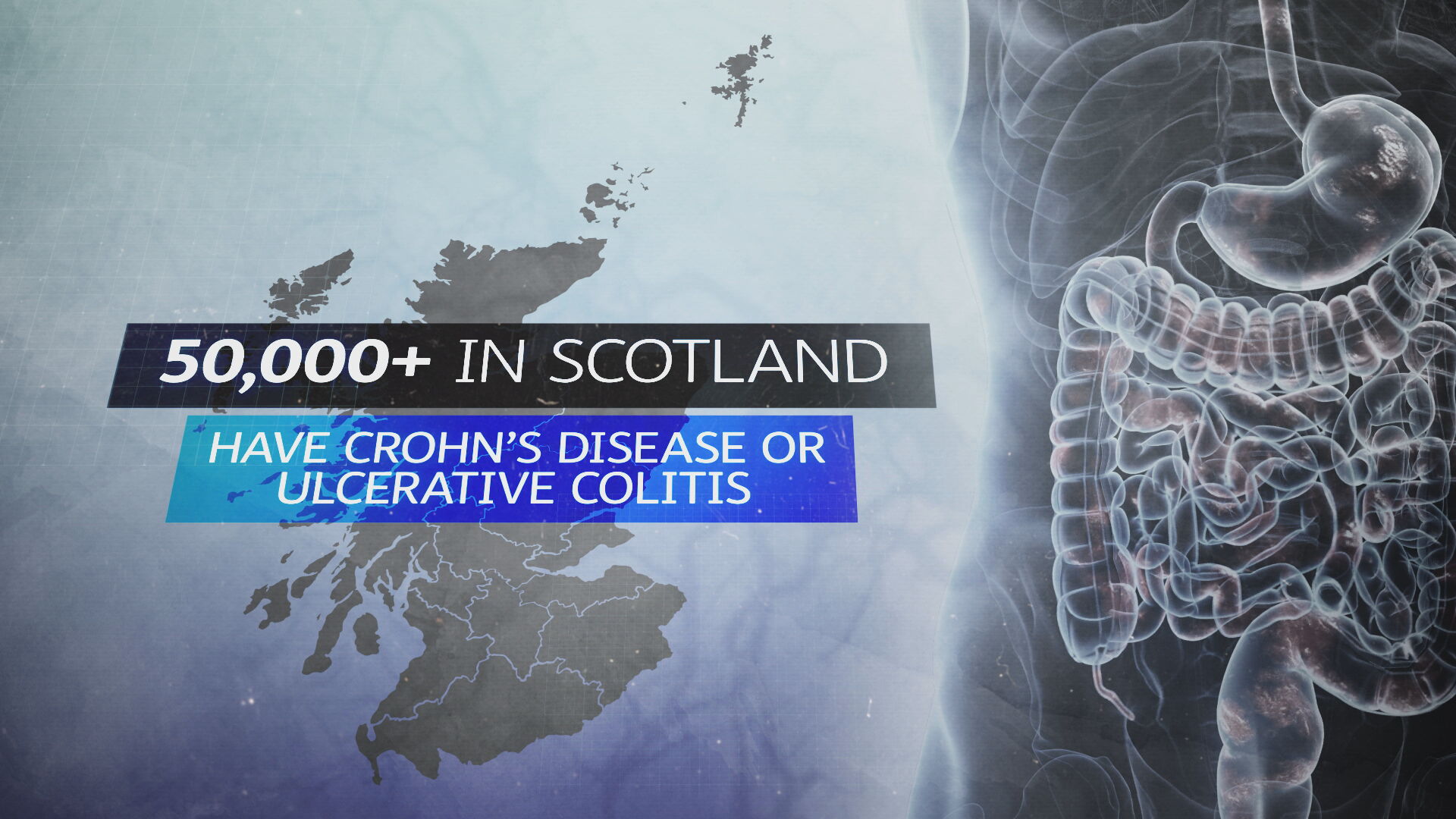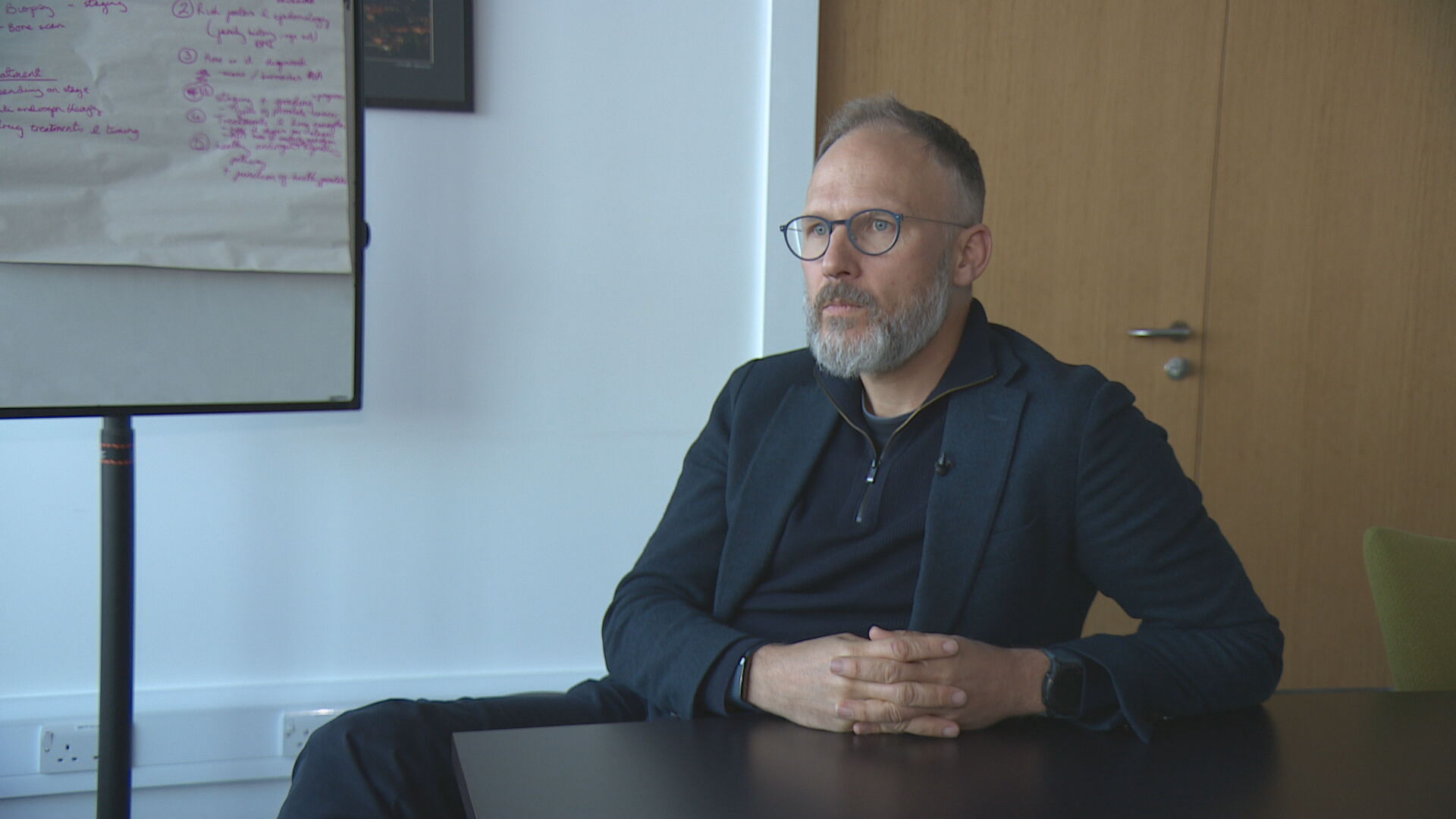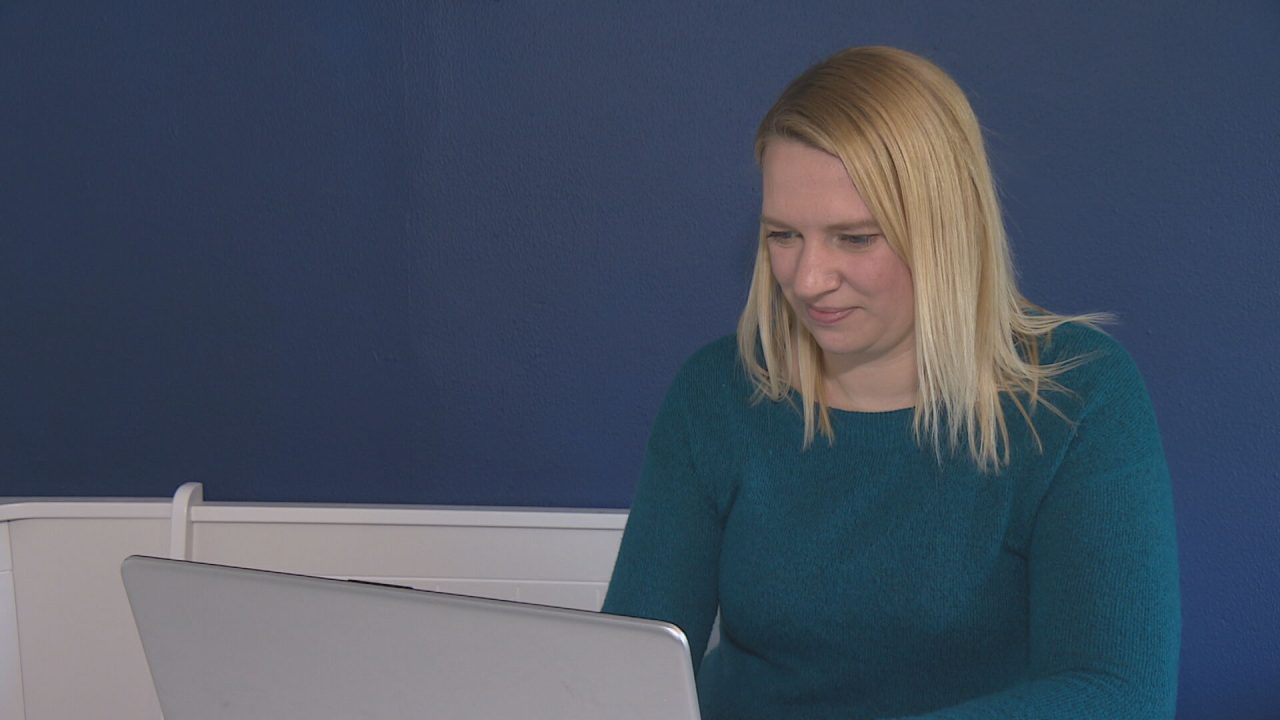A woman suffered from a painful eye condition for years before learning it was linked to Crohn’s disease.
Jen Mill, 37, from Edinburgh, was told by doctors she had uveitis – a condition that causes painful inflammation inside the eye – in 2012.
She was going through a stressful time after starting a new job, ended a long-term relationship and lost her father to lung cancer.
It wasn’t until years later that Jen began experiencing severe stomach cramps, excruciating headaches, difficulty eating, and uncontrollable vomiting.
Initially, she and her doctors dismissed it as food poisoning, a stomach bug, or dietary issues, but the symptoms persisted.
Finally, in 2020, her condition worsened to the point that Jen knew something was seriously wrong.
Jen told STV News: “I couldn’t stop being sick. It had been about four or five hours.
“I phoned up my GP and I said to them, something is seriously wrong, this isn’t the first time it’s happened, I’m on my own, I’m really, really worried.”
 STV News
STV NewsDue to lockdown restrictions, Jen’s GP was initially hesitant to see her in person.
However, after an eventual consultation, she was sent straight to A&E.
“That was me admitted for four days, and the first time I had any sort of stool samples, any sort of test, blood tests even,” she said.
Jen was then admitted to hospital for a second time that November while waiting for outpatient appointments.
“The gastro consultant who saw me basically said, ‘look, it’s either going to be cancer or it’s going to be Crohn’s disease,'” she recalled.
“When he finally said ‘it’s Crohn’s disease’, my initial thing was relief. It’s got a name. I know what’s wrong with me.”
More than 50,000 people in Scotland have been diagnosed with Crohn’s disease and ulcerative colitis, which are forms of inflammatory bowel disease.
Jen underwent surgery to remove part of her bowel. Her quality of life has improved and her condition has since been more manageable.
She has access to a team of IBD experts who can advise her.
“My IBD consultant is quite engaged with me,” she said.
“When it came to the decision to have my surgery, I think that was a really positive experience for me.
“It should have been a really scary experience for me, and it was, but I felt quite empowered in that moment.
“I was allowed to get in a room with my consultant, a surgeon, an IBD nurse, and we all talked it out.”
But Jen’s experience is not universally shared. A patient survey by the charity Crohn’s and Colitis UK has revealed that across the country standards of care can vary widely.
While 53% of patients in Edinburgh rated their care as “excellent” or “very good” that figure is as low as 33% in Fife, 31% in North Lanarkshire and 27% in Inverclyde.
‘My IBD nurse saved my life – others now might not be so lucky’
 STV News
STV NewsMareta Greig, who has experienced most of her care in the Greater Clyde area, has ulcerative colitis.
A concern for many patients is that, as more people are diagnosed for IBD, they feel care standards have actually become worse, not better.
She had been living with the disease for a decade when her bowel perforated while in hospital in 2018, and she was forced to undergo seven operations.
Mareta now lives with a stoma bag. She says that if the same thing happened now, she would not be as fortunate.
“When I was first diagnosed, there was an IBD nurse in post, who was absolutely amazing, and I credit her with saving my life,” she said.
“If I ever had a concern or I was experiencing a flare, I could email her, leave her a voicemail, and I got a response straight away – where as now, these services are not in place.”
It’s services like those, and their availability, which IBD specialists feel are crucial to good care.
Thomas Preece, a policy manager at Crohn’s and Colitis UK said: “There are not enough IBD nurses. There’s not enough stoma nurses. We can see that in different services, they’re really lacking in certain areas.
“It’s crucial that people get the right care at the right time, and people who know what they’re doing.”
Experts are clear that diagnosis tools and care for IBD has come on leaps and bounds in the past two decades, and that now it’s a case of finding consistency.
‘We need better, consistent care across Scotland’
 STV News
STV NewsProfessor Charlie Lees is a consultant gastroenterologist based at the Western General Hospital in Edinburgh.
He said: “We know how to manage Crohn’s disease and ulcerative colitis effectively now, particularly if we start the right therapy early.
“The problem is that it is not done everywhere.
“How do we improve the standards of care? Well we implement what we currently know works, which is a lot, and we do it consistently across the board.”
Charities and campaigners alike are clear in their pleas – focus and funding for IBD needs to increase to match the rising rates of conditions in Scotland.
Crohn’s and Colitis UK are also keen to raise awareness, which they feel is crucial in helping to diagnose people quickly.
Doing so can limit the damage done by Crohn’s disease or Colitis and maximise the level of care options available.
The charity worked with the Scottish Government last year on a public awareness campaign.
Scottish Government public health minister Jenni Minto said: “People who require Inflammatory Bowel Disease (IBD) services should receive the best possible care and support and benefit from healthcare services that are safe, effective and put the patient at the centre of their care.
“The Scottish Government has provided additional investment to NHS boards since 2015 to support clinical nurse specialist provision and care. Boards make the decisions on where to prioritise this funding based on local need.
“The Scottish Government expects NHS boards to ensure that patients with specialist conditions such as IBD have appropriate access to a range of professionals, including specialist nurses, to ensure the best management of their condition.”
Follow STV News on WhatsApp
Scan the QR code on your mobile device for all the latest news from around the country




























